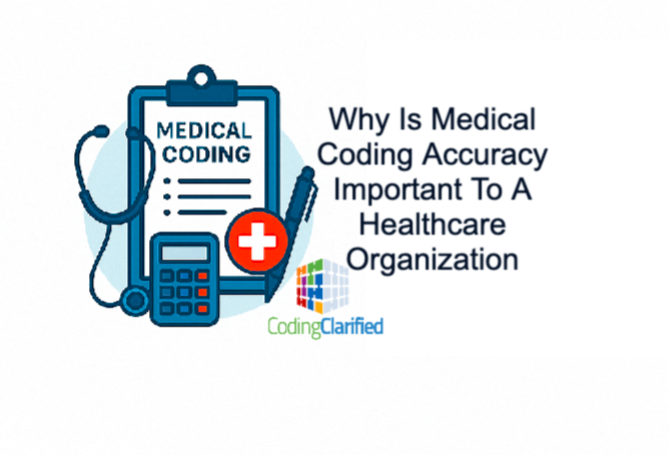Why Is Medical Coding Accuracy Important to a Healthcare Organization?
Medical coding serves as the foundation for proper documentation, billing, compliance, and quality reporting in the healthcare industry. Accuracy in medical coding is not just about correct numbers and codes—it directly impacts patient care, financial performance, and regulatory compliance for healthcare organizations.
Ensures Proper Reimbursement
Accurate coding ensures that healthcare providers are reimbursed fairly and promptly for the services they deliver. Under-coding can result in financial loss, while over-coding may trigger audits and penalties. Proper coding matches the level of service provided with the correct procedural and diagnostic codes, reducing claim denials and delays in payment.
Medical Coding and Billing Denials https://codingclarified.com/medical-coding-and-billing-denials/
Supports Patient Safety and Quality of Care
Medical codes feed into patient records and are often used in data analytics to track outcomes, identify health trends, and improve care. Inaccurate coding can lead to misinformation in patient histories, misinformed decisions, and suboptimal treatment plans. Accurate documentation ensures continuity of care across different providers.
Maintains Legal and Regulatory Compliance
Coding accuracy is vital for staying compliant with regulations from CMS, HIPAA, and other governing bodies. Inaccurate coding can lead to audits, fines, or even legal action under the False Claims Act. Regular audits and coder training help maintain compliance and reduce risk.
Aids in Public Health and Research
Health data derived from coded information is used for public health reporting, research, and policy development. Inaccurate coding skews data and can negatively impact healthcare initiatives. Accurate coding allows organizations to contribute valid data to disease registries, public health surveillance, and research studies.
Enhances Organizational Reputation
Reimbursement issues, denied claims, or fraud investigations caused by poor coding can harm a healthcare organization’s reputation. High coding accuracy reflects professionalism, supports patient trust, and helps maintain strong relationships with payers and regulatory agencies.
Reduces Administrative Burden
Coding errors result in increased time and resources spent on claim rework, appeals, and audits. By coding correctly the first time, healthcare organizations streamline their revenue cycle processes and reduce the workload for billing, compliance, and administrative teams.
In summary, accurate medical coding is essential for both clinical and operational success in a healthcare organization. It not only ensures financial integrity but also improves patient care and compliance. Investing in skilled coders, ongoing training, and coding audits is crucial for maintaining high standards and long-term sustainability.
AAPC Compliance https://www.aapc.com/resources/what-is-healthcare-compliance

